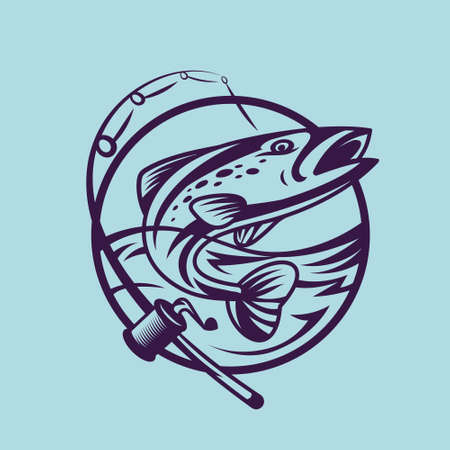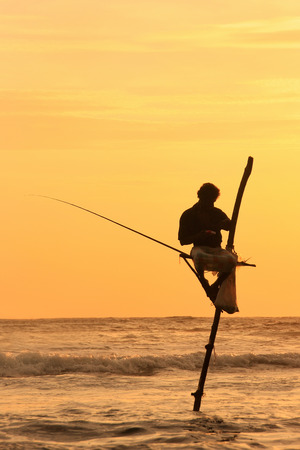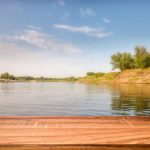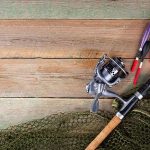1. Fueling the Body: Smart Nutrition for Tournament Success
When youre out on the water for multiple days chasing bass, your body is under constant physical and mental stress. Long hours in the sun, limited access to full meals, and the need to stay sharp all day means you cant afford to neglect your nutrition. Heres how to strategically fuel your body before, during, and after each tournament day to keep your energy up and your mind focused.
Pre-Tournament Meal Planning
The key to lasting energy starts with what you eat leading up to the tournament. Focus on complex carbs and lean proteins that provide sustained energy without weighing you down.
| Meal Time | Recommended Foods | Why It Works |
|---|---|---|
| Night Before | Grilled chicken, brown rice, steamed vegetables | Provides slow-digesting carbs and protein for overnight recovery |
| Morning Of | Oatmeal with banana and peanut butter | Gives long-lasting energy and healthy fats to start the day strong |
On-the-Water Snacks That Work
You won’t always have time for a full lunch on the boat, but smart snacking can help prevent energy crashes and mental fatigue. Choose snacks that are portable, non-perishable, and packed with nutrients.
Top Boat-Friendly Snacks:
- Beef jerky – high in protein, easy to store
- Trail mix – good mix of carbs, fats, and protein
- Whole grain granola bars – quick energy without sugar spikes
- Peanut butter crackers – satisfy hunger and provide steady fuel
- Fresh fruit like apples or oranges – natural sugars and hydration boost
The Importance of Hydration
Staying hydrated is just as important as eating right. Dehydration can lead to fatigue, headaches, and poor focus—all things you don’t want when every cast counts. Start hydrating early in the day and sip consistently throughout.
| Beverage Type | When to Drink | Benefits |
|---|---|---|
| Water | All day long, especially before feeling thirsty | Keeps you hydrated without added sugar or caffeine crashes |
| Electrolyte drinks (low sugar) | During peak heat or after heavy sweating | Replaces essential minerals like sodium and potassium lost through sweat |
| Coconut water (unsweetened) | Sporadically throughout tournament days | Naturally hydrating with light electrolytes and no artificial ingredients |
Avoiding Common Pitfalls
Avoid sugary drinks like soda or energy drinks—they might give a quick jolt but often lead to a crash later in the day. Likewise, skipping meals or relying on fast food can leave you sluggish or bloated right when you need to be at your best.
Pro Tip:
Pack a small cooler with prepped snacks, cold water bottles, and a backup electrolyte option so youre never caught unprepared when hunger or dehydration hits mid-lake.
Tournament fishing is as much about endurance as it is skill. With smart meal planning and consistent hydration habits tailored to the demands of multi-day events, youll not only feel better—but fish better too.
2. Pre-Tournament Conditioning: Building Endurance and Strength
When youre gearing up for a multi-day fishing tournament, its not just about having the best gear or knowing the water—your body needs to be ready too. Long hours on the boat, standing, casting, and battling fish can take a serious toll if you’re not physically prepared. That’s why building cardiovascular endurance, core strength, and flexibility is key to staying sharp and avoiding fatigue throughout the tournament.
Why Cardio Matters
Cardiovascular training helps improve your overall stamina, so you don’t feel drained halfway through the day. Good cardio conditioning also improves circulation and oxygen delivery to your muscles, keeping you alert and focused during those early mornings and long afternoons on the water.
Simple Cardio Exercises for Anglers
| Exercise | Duration | Frequency |
|---|---|---|
| Brisk Walking or Jogging | 30 minutes | 3–5 times/week |
| Cycling (outdoor or stationary) | 30–45 minutes | 2–3 times/week |
| Jump Rope | 10–15 minutes | 2–3 times/week |
The Core of Your Fishing Game
Your core does more than just help with balance—it supports every movement you make on the boat, from casting to reeling in big fish. A strong core reduces your risk of back pain and injuries, especially when standing for long periods or navigating rough water.
Core Strengthening Moves
- Planks: Hold for 30–60 seconds, repeat 3 times.
- Bicycle Crunches: 15–20 reps per side.
- Russian Twists: Use a light weight or medicine ball, 20 reps total.
The Power of Flexibility
Tight muscles can lead to discomfort and even injury during a long fishing trip. Stretching regularly helps keep your muscles loose and joints mobile so you can move freely without strain. It also improves posture and helps maintain energy levels throughout the day.
Top Stretches for Anglers
- Hamstring Stretch: Prevents lower back tension.
- Shoulder Rolls & Stretches: Keeps casting arm loose and pain-free.
- Torso Twists: Improves mobility for better range of motion during casting and reeling.
Create a Weekly Routine
If youre not sure how to put it all together, heres a simple weekly plan to get started:
| Day | Main Focus | Activities |
|---|---|---|
| Monday | Cardio + Core | Jogging + Planks & Crunches |
| Tuesday | Flexibility + Recovery | Full-body stretching routine (20 mins) |
| Wednesday | Cycling + Core Strengthening | Cycling + Russian Twists & Planks |
| Thursday | Rest or Light Walk + Stretching | Mild activity + Shoulder & Hamstring stretches |
| Friday | Cardio Blast + Core Circuit | Jump Rope + Full core workout set |
A consistent physical routine doesn’t have to be intense—but it should be intentional. By focusing on cardio health, core strength, and flexibility before tournament day arrives, youll give yourself a major edge on the water when it matters most.

3. On-the-Water Nutrition: Snacking and Hydration Strategies
Staying sharp during a multi-day fishing tournament isn’t just about skill and technique—it’s also about keeping your body fueled and hydrated. Long hours on the water, often in hot or unpredictable weather, can take a serious toll if you’re not prepared with the right nutrition. Here are some simple, high-protein snack ideas and hydration tips to keep you focused and energized throughout the day.
High-Protein Snacks for Sustained Energy
When youre out on the boat for 8 to 12 hours, convenience is key. You need snacks that are easy to eat one-handed, won’t spoil quickly, and provide enough protein to keep you going without a crash. Below are some of the best options:
| Snack | Why It Works |
|---|---|
| Beef Jerky | High in protein, portable, and shelf-stable |
| Protein Bars | Balanced mix of carbs and protein for sustained energy |
| Mixed Nuts & Seeds | Healthy fats and protein; no refrigeration needed |
| Hard-Boiled Eggs (in cooler) | Natural source of protein; easy to prep ahead |
| Tuna Packets (with crackers) | Lightweight and rich in lean protein |
| String Cheese or Cheese Sticks (in cooler) | Calcium-rich and filling; pairs well with nuts or fruit |
Smart Hydration Practices
Dehydration is a common issue during tournaments—especially in warm climates or when youre too focused on fishing to remember to drink. Staying hydrated helps maintain mental clarity, reaction time, and endurance.
Hydration Tips:
- Start Early: Drink water before you even launch the boat to get ahead of dehydration.
- Aim for Consistency: Sip small amounts regularly instead of chugging occasionally.
- Add Electrolytes: Use sports drinks or electrolyte powders/tablets to replace sodium and potassium lost through sweat.
- Avoid Sugary Beverages: Too much sugar can cause energy crashes later in the day.
- Use Insulated Bottles or Coolers: Keep your drinks cold for better taste and effectiveness, especially during summer tournaments.
Recommended Fluids for Tournament Days:
| Beverage | Benefits |
|---|---|
| Water (plain or flavored) | Main source of hydration without added sugar or calories |
| Coconut Water | Naturally contains electrolytes like potassium and magnesium |
| Low-Sugar Sports Drinks | Replenish electrolytes while limiting sugar intake |
| Electrolyte Tablets/Powders (mixed with water) | Customizable hydration that’s easy to pack and mix on the go |
The right snacks and smart hydration habits can make a big difference in how you perform across multiple days on the water. Keeping your body properly fueled means more focus, quicker decisions, and better endurance as each tournament day wears on.
4. Recovery Between Days: Sleep, Stretching, and Recharging
Multi-day fishing tournaments can take a toll on your body and mind. That’s why recovery between each day is just as important as the preparation before the event. A solid nighttime routine, smart use of recovery tools, and simple stretching can help you bounce back fast and stay sharp from day one to the final weigh-in.
Establishing a Solid Nighttime Routine
A good night’s sleep helps restore energy, improve focus, and reduce muscle fatigue. Aim for 7–9 hours of quality sleep each night during tournaments. Here are a few tips to wind down effectively:
- Limit screen time: Avoid phones or tablets 30–60 minutes before bed to help your brain relax.
- Stay hydrated: Drink water throughout the day, but cut off large amounts an hour before bed to avoid bathroom interruptions at night.
- Set a consistent bedtime: Going to sleep and waking up at the same time helps regulate your body clock.
- Use calming routines: Light stretching, deep breathing, or even listening to relaxing music can signal your body it’s time to rest.
Recovery Tools for Anglers
You don’t need a full gym setup to recover well. There are plenty of portable tools that can help relieve sore muscles and boost circulation after long hours on the water.
| Tool | Purpose | How to Use |
|---|---|---|
| Foam Roller | Releases tight muscles in legs, back, and shoulders | Roll slowly over sore areas for 1-2 minutes per muscle group |
| Lacrosse Ball | Targets knots and pressure points | Place under tight spots and apply gentle pressure for 30 seconds |
| Compression Sleeves/Socks | Improves blood flow and reduces swelling | Wear post-fishing or overnight for best results |
| Massage Gun | Percussive therapy for deep muscle relief | Apply to sore muscles for short bursts (15-30 seconds per spot) |
| Epsom Salt Bath (if available) | Relaxes muscles and reduces inflammation | Sit in warm water with 1–2 cups of Epsom salt for 15–20 minutes |
Stretching Techniques That Work
Tight hips, lower backs, and shoulders are common issues after long days fishing from a boat. Doing light stretches at night—and even in the morning—can keep your body loose and ready.
Simple Daily Stretches for Anglers:
- Hamstring Stretch: Sit on the ground with one leg extended. Reach toward your toes and hold for 20–30 seconds. Switch sides.
- Crossover Shoulder Stretch: Pull one arm across your chest with the opposite hand. Hold for 20 seconds per side.
- Kneeling Hip Flexor Stretch: Kneel on one knee with the other foot in front. Push hips forward gently until you feel a stretch in your hip. Hold 20–30 seconds each side.
- Cow-Cat Stretch: On all fours, arch your back up (cat), then dip it down (cow). Great for loosening up the spine.
- Neck Rolls: Slowly roll your head in circles to relieve neck tension—especially helpful after wearing sunglasses or hats all day.
Bonus Tip: Morning Movement Matters Too
A quick 5-minute warm-up in the morning can wake up stiff joints and get blood flowing before you hit the lake. Try light jumping jacks, arm circles, or walking lunges while waiting on launch time.
The key to staying sharp during multi-day tournaments isn’t just how hard you fish—it’s how well you recover when youre off the water. By making sleep, stretching, and smart recovery tools part of your daily routine, you’ll feel better each morning and fish stronger through the final cast.
5. Mental Preparation: Staying Sharp and Focused Under Pressure
Fishing multi-day tournaments isnt just a physical game—your mental toughness can make or break your performance. Long hours on the water, early mornings, unpredictable weather, and tough competition all add up. That’s why having a strong mental game is just as important as your bait selection or casting technique.
Mindset Training for Tournament Success
Your mindset sets the tone for how you handle every situation—from missed strikes to mechanical issues. Start each day with a clear goal and positive self-talk. Remind yourself why you’re out there and what you’ve trained for. Visualization is also a powerful tool; spend time imagining different scenarios on the water and how youll respond calmly and confidently.
Daily Mindset Routine Example
| Time | Activity |
|---|---|
| 5:00 AM | Quick breathing exercise (2-3 minutes) |
| 5:05 AM | Mental visualization of the days plan |
| After launch | Positive affirmations & focus reminders |
| During breaks | Reset with deep breaths and hydration |
Managing Fatigue-Induced Mental Lapses
Tournament days can stretch 10 hours or more, and fatigue messes with your decision-making, reaction time, and patience. Staying mentally sharp means recognizing when you’re fading and knowing how to bounce back quickly. Key strategies include staying hydrated, snacking smart, stretching during downtime, and even short meditative moments when possible.
Quick Reset Tricks On The Water
- Take 30 seconds to close your eyes and breathe deeply between casts.
- Splash cool water on your face to refresh.
- Eat a protein-rich snack like jerky or nuts to fuel your brain.
- Stand up and stretch if youve been sitting too long.
Developing Routines to Stay Focused and Calm
The best anglers have routines that keep them grounded no matter what the lake throws at them. Whether its organizing tackle the same way every morning or repeating a calming phrase before every cast, routines help reduce stress and boost confidence. Create habits that support your performance so you dont have to rely on willpower alone when youre tired or frustrated.
Sample Pre-Cast Routine
- Check lure setup for any damage or tangles.
- Scan surroundings for movement or structure.
- Take one focused breath in and out.
- Cast with intention—know why youre targeting that spot.
Mental preparation isn’t about being perfect—it’s about staying steady through ups and downs. With a strong mindset, you’ll not only fish smarter but enjoy the grind of tournament life even more.


